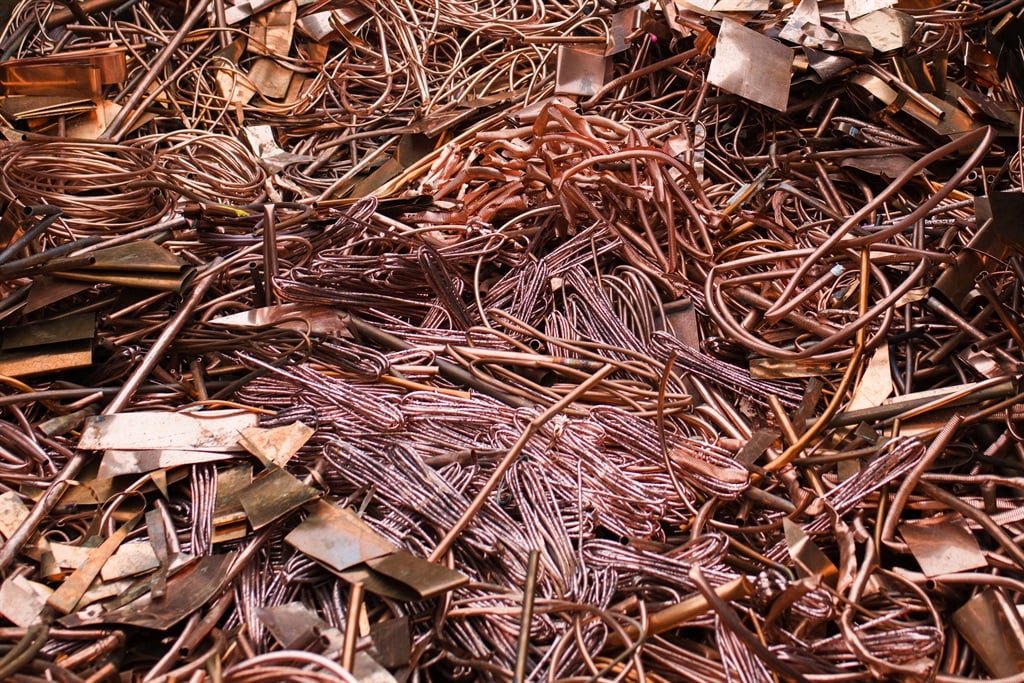
Trade, Industry, and Competition Minister Ebrahim Patel told Parliament that the government's proposed scrap metal policy would introduce a transaction tracing system to make it harder for criminals to hold and sell stolen cable copper and scrap metal.
Patel said the government believed this was a more appropriate solution to curbing the theft of scrap metal and copper cable from public infrastructure than a wholesale ban on trading the material, which Patel said would affect livelihoods and the economy.
President Cyril Ramaphosa announced in his State of The Nation Address in February that the government would respond to the scourge and a draft policy was later released.
The draft scrap metal policy was released in the government gazette earlier this month. It proposes a prohibition on the use of cash in any transaction involving scrap, waste, or semi-finished metal to make all legal transactions involving scrap traceable.
Briefing Parliament's Portfolio Committee on Trade and Industry, Patel said the new metal trading regime would be designed to undermine criminal syndicates that target infrastructure and limit the costs of losing infrastructure on the value chain.
"The cost of metal theft, according to TIPS [Trade and Industrial Policy Strategies] and Genesis Analytics, exceeded R46 billion. Those costs were drawn from work done with Transnet, the mining industry, and Prasa, and they don't include the other costs on the private sector and industry that we would typically add to this," said Patel.
Patel said South Africa had a 600 000km network of rail and electricity lines and hundreds of thousands of physical sites that are vulnerable to attack, which made the permanent manned guarding of these locations cumbersome.
Full-time policing 'impractical'
"Everywhere there is public metal is being targeted for small amounts of metal with a huge economic cost. The sheer size of public infrastructure makes 24-hour policing and physical security of each potential metal or copper-cable site, impractical.
"The proposed policy seeks to shift from trying to monitor thousands of locations to disrupting the networks and increasing the costs on the syndicates. We will then be able to win the battle against the theft of copper cable and scrap metal," Patel said.
Patel unpacked the government's proposed three-phased approach to the scrap metal policy. The first phase included a six-month prohibition on the export of waste and scrap metal, while the second phase included amendments to regulations to enhance the tracing of metal trading, and phase three includes the total ban of cash as a means of trade in scrap.
He said the policy seeks to frustrate syndicates' ability to export stolen scrap metal with a wholesale ban on exports. The policy will require any holder of scrap metal to have a registered document to indicate where it was purchased and to whom they intend to sell it.
"One is not able to sell more scrap metal than one is able to legitimately establish as bought. A prohibition on the use of cash in scrap metal trade will make it easier to trace transactions," he said.
Patel said the complete prohibition on copper trade is not appropriate in South Africa's circumstances and the government believes it has opted for a "more effective and less onerous" alternative.
Economic sabotage
DA MP Matt Cuthbert said he remained of the view that scrap metal theft was a law enforcement issue, not a trade policy issue. He said the draft policy did not adequately address the semi-processing and melting of materials to avoid the sanctions.
"We see Kenya implemented their ban on aluminium scrap export and quickly walked it back because it had serious consequences for jobs. The fact is what is not wanted locally is exported. If the ban is introduced under the current tariffs, it could cause R31 billion in losses," said Cuthbert.
Freedom Front Plus MP Jaco Mulder echoed Cuthbert's misgivings, adding that if South Africa did not improve the standards of law enforcement, criminal syndicates would continue to attack public infrastructure with impunity.
"One can restrict and that will have consequences, but what we need is a policing system. One should actually institute a crime intelligence department within every department. We know the challenges we have had with corruption and state capture and we have seen it in other industries," said Mulder.
ANC MP Sipho Burns-Ncamashe said the issue comes to the committee as an issue that should have been addressed at other levels. He urged his colleagues not to overlook the possibility of established businesses facilitating scrap metal theft as part of a sophisticated "economic sabotage".
"If you look at the paradoxical symbiosis between the black-market trade and that which is characterised as white or blue-collar crime relative to the numbers, we are not talking hundreds of thousands. We are talking billions. It tells you that the industries involved are not all small enterprises," said Ncamashe.
Patel said all the advice that the government relied on was consistent about the need vast measures to respond to scrap syndicates. The public has until the close of business on Friday to submit comments on the draft scrap metal policy.

